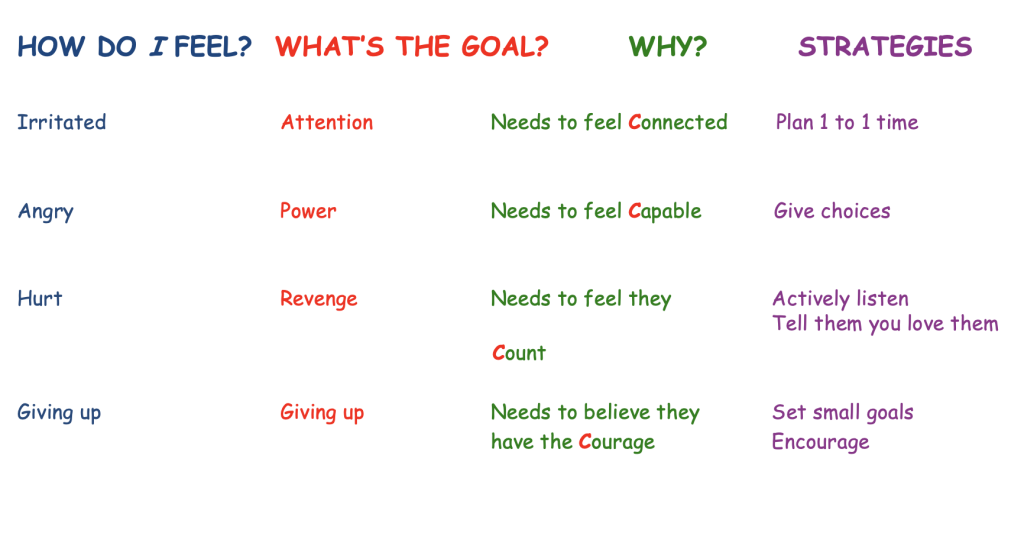It is important to share the people behind the research before we begin.
ALFRED ADLER (1870-1937)
Alfred Adler was an Austrian psychotherapist working in Vienna at the same time as Freud.
He was one of the first psychotherapists who was interested in the relationship between parents and their children and individuals and society.
Adler recognised that every action of a child has a purpose and that the child’s basic aim is:
- to have significance,
- to feel they belong
and
- have a place in their social group.
Therefore he concluded that a child who is misbehaving is trying, in their own way, to get their needs met, to find their place and to feel important in their own world.
Four goals of misbehaviour
Adler identified four goals of misbehaviour:
- Attention seeking
- Power seeking
- Revenge seeking
- Giving up
BETTY-LOU BETTNER AND AMY LEW and the Crucial C’s
Betty-Lou Bettner and Amy Lew are American psychologists who practise, teach and write using Adlerian principles and came up with the idea of the CRUCIAL C’s to help parents to understand and remember the goals of misbehaviour.
The Crucial C’s are
- Connect – I need to believe I belong
- Capable – I need to believe I can do it
- Count – I need to believe I can make a difference
- Courage – I need to believe I can handle what comes
The clue to their need and the best way to respond
The best way to work out what your child needs by their behaviour, is to ask yourself how their behaviour makes you feel?!
CONNECT
When you are feeling irritated by your child it is usually because they are looking for your attention because they need to connect.
Even though you may not be able to give it right away (and you do not want to reward negative behaviour), make a note that they are asking for some one to one time and plan it as soon as possible.
CAPABLE
If you feel angry or feel like you are getting into a power struggle with your child it’s usually because they don’t feel capable of doing something.
Give them choices (and get out of the ring) and plan some time to actively listen to them.
COUNT
If you feel hurt by something your child has said (or keeps saying) it may be because they don’t feel they count (or valued) in some way.
Tell them what you really like about them and be specific about positive behaviours. Actively listen them and include them in family decisions – for example, let them choose a meal or pudding for the family each week.
Encourage
If you feel like giving up, it is likely your child feels like giving up too 🙁
Give them COURAGE. Start small and build on the positives.
Encouraging words and actions during the process will have a big effect on your child’s self esteem and their motivation to carry on or have the courage to start something new.
Learning to have a go even if they do not always succeed (or be the best) at something are good skills for life.
Focus on the effort that your child is putting into something (however small rather) than the end result.
